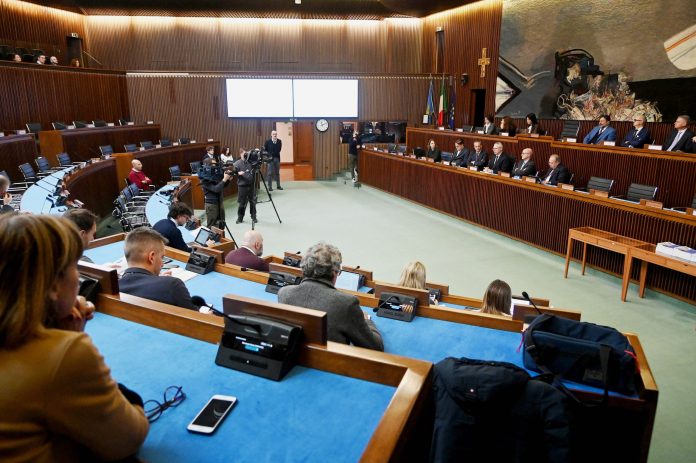by EH
A highly unusual and tense session unfolded on Wednesday in the Regional Council of Friuli Venezia Giulia, as internal disagreements and confusion surrounding the recent resignation of the majority of the regional government’s assessors brought parliamentary proceedings to a near halt.
The opening Question Time segment of the session quickly descended into a dispute between Council President Mauro Bordin and opposition members over procedural rules. Bordin insisted on proceeding with the agenda as scheduled, asserting his authority over the session. Opposition members, led by Vice President Francesco Russo (Democratic Party), countered that protocol did not permit the moves being made. The exchange triggered a broader breakdown in decorum, with Antonio Calligaris (Lega) accusing the opposition of “theatrics that verge on the ridiculous,” while Rosaria Capozzi (Five Star Movement) responded that it was in fact the majority who were staging a “spectacle,” to the confusion of citizens watching from the outside.
The root of the conflict lies in the fallout from Governor Massimiliano Fedriga’s announcement last week that seven out of his ten regional assessors had returned their portfolios to him—an unprecedented political gesture that has yet to be fully explained. Opposition groups have repeatedly requested a formal statement from the governor to clarify the implications of the move. Those requests remain unanswered.
In protest, several opposition councilors—including Enrico Bullian and Marco Putto (Patto per l’Autonomia–Civica FVG), along with Russo and Capozzi—attempted to withdraw their scheduled questions for the day. The intention was to signal their refusal to participate in what they described as an institution functioning in a state of opacity. However, it later emerged that the council’s procedural rules do not allow for unilateral withdrawal of submitted questions, rendering the protest largely symbolic.
Bullian specifically pointed to recent statements made to the press by Regional Councillor Cristina Amirante—one of the three assessors who did not return their portfolios—as contributing to the confusion. “In this situation of deadlock, it’s difficult to communicate clearly and honestly with citizens,” he said. Putto echoed the concern: “We need to know whether these portfolios still enjoy the full confidence of the governor.” Russo added that while the resignations may not have a direct administrative effect at this point, their political implications are significant and require urgent clarification.
Following the verbal clashes, the floor was temporarily closed and a brief meeting of party leaders was convened to determine how to proceed with the day’s work.
As of now, the political impasse continues, with little clarity on the status of the regional government’s executive team or the timeline for a possible reshuffle or clarification from President Fedriga.





























